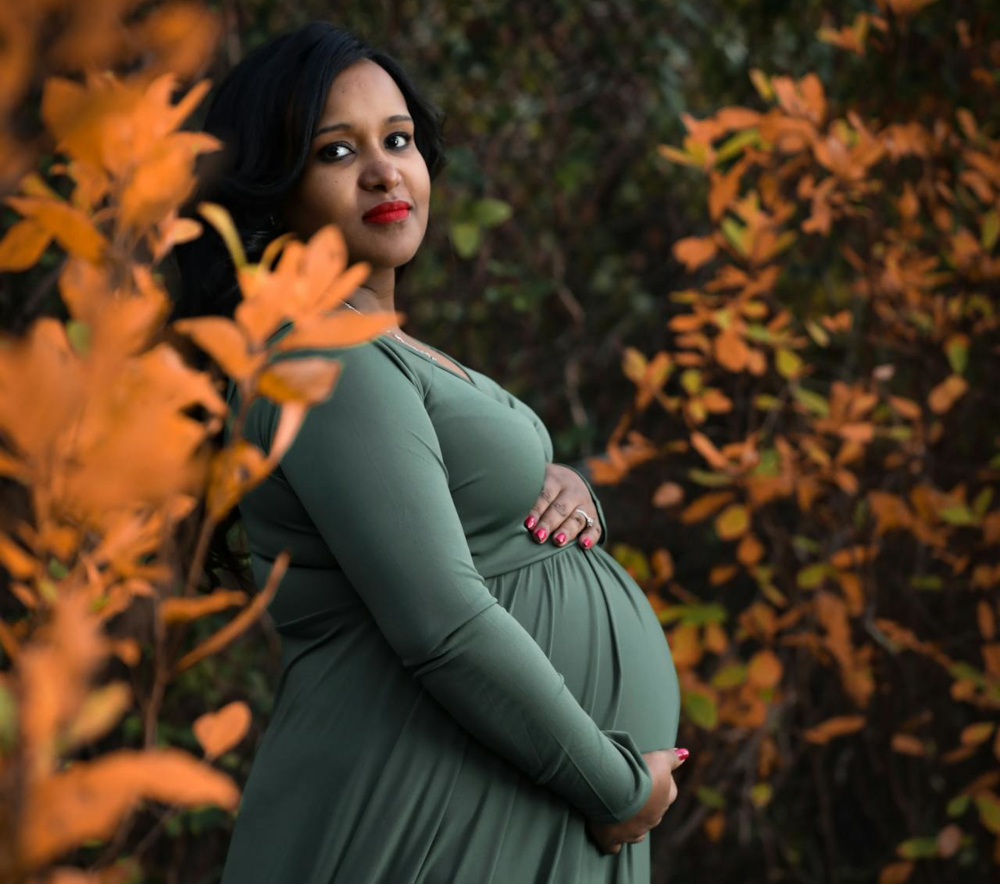Why Vitamin D Is Even More Important During Pregnancy

Pregnancy can be the most dangerous time in a woman’s life, for a variety of reasons; but, nutritionally, pregnancy is a risk factor for vitamin D deficiency and its consequences. I’m sure you know by now that vitamin D is necessary for healthy bones, the prevention of high blood pressure, diabetes, cancer, and even dementia, but vitamin D is even more important during pregnancy.
Preeclampsia is Dangerous for Mother and Child
One of the consequences of vitamin D deficiency for pregnant women is an increased risk for preeclampsia. Preeclampsia is quite common, occurring in 1 in every 20 pregnancies during the third trimester.
“Preeclampsia... is a condition during pregnancy where there is a sudden, sharp rise in blood pressure, swelling (edema), and albuminuria (excess protein albumin leaks into the urine). Swelling tends to occur in the face, hands, and feet.”1
Untreated preeclampsia can develop into eclampsia, which has the potential to be fatal. Eclampsia is a leading cause of pregnancy-related deaths. In the state of California alone, 17% of pregnancy-related deaths were a result of preeclampsia/eclampsia (between 2002 and 2004). And, keep in mind, California has one of the lowest maternal death rates in the United States.
In addition, studies have demonstrated that women who suffered preeclampsia during pregnancy have a greater risk of cardiovascular disease later in life.
“After pre-eclampsia women have an increased risk of vascular disease. … Overall mortality after pre-eclampsia was increased: 1.49 (1.05 to 2.14) after 14.5 years. … A history of pre-eclampsia should be considered when evaluating risk of cardiovascular disease in women. This association might reflect a common cause for pre-eclampsia and cardiovascular disease, or an effect of pre-eclampsia on disease development, or both.”2
There’s even evidence that the unborn child is negatively affected by preeclampsia. The Helsinki Birth Cohort Study showed that the adult offspring of mothers who suffered from preeclampsia have a higher stroke risk as adults.
“People born after pregnancies complicated by pre-eclampsia or gestational hypertension are at increased risk of stroke. The underlying processes may include a local disorder of the blood vessels of the brain as a consequence of either reduced brain growth or impaired brain growth leading to “brain-sparing” responses in utero.”3
Today, medical researchers are still unsure of the factors that cause preeclampsia to develop. But they are certain that preeclampsia can be prevented, by the sunshine vitamin.
(Note: There’s also a study that established vitamin D levels during pregnancy can affect the offspring’s muscle strength. I thought you might find that interesting too.)
Vitamin D and Preeclampsia
A study comparing the vitamin D levels of thousands of women, during the first 26 weeks of pregnancy, showed that those with a vitamin D deficiency were 40% more likely to develop severe preeclampsia. It has been suggested, by the same study, that mild preeclampsia may have another cause entirely. But severe preeclampsia was definitively linked to vitamin D deficiency.
But the American researchers are being optimistically cautious. While they admit the evidence has proven vitamin D is even more important during pregnancy than at any other time, they want more studies to be completed before obstetricians advise their patients to take vitamin D supplements, to prevent preeclampsia. Meanwhile, women’s health organizations, such as the American Pregnancy Association, have been saying for years that pregnant women are not getting enough vitamin D from prenatal vitamins and sunlight to prevent the preventable.
It’s long been recognized that factors such as sunscreen use and obesity play a significant role in why so many people are not getting enough vitamin D; so, women’s health organizations have no problem with recommending supplementation to close that nutritional gap during pregnancy. Although, not specifically to prevent preeclampsia.
If you want to learn more about Vitamin D’s effect on health and well-being, as well as how to calculate the perfect dose for your own individual needs, watch my video ‘Vitamin D vs Disease’. The method for calculating your personal dosage is near the end of the video.
Love what you’re reading? Don’t miss out on future articles! Subscribe for updates on our latest posts and our bi-monthly newsletter.
Sign up now—no spam, just good vibes and holistic health insights delivered straight to your inbox!
1 Nordqvist, Christian. “Preeclampsia: Causes, Diagnosis, and Treatment”. Medical News Today, October 12, 2016. Web. March 2017
2 Williams, David J, MD, Bellamy, Leanne, et al. “Pre-eclampsia and risk of cardiovascular disease and cancer in later life: systematic review and meta-analysis”. The BMJ, July 18, 2007. Web. March 2017
3 Kajantie, Eero, Eriksson, Johan G, Osmond, Clive, et al. “Pre-Eclampsia Is Associated With Increased Risk of Stroke in the Adult Offspring”. Stroke, March 30, 2009. Web. March 2017
Whitman, Honor. “Vitamin D deficiency in pregnancy ‘increases preeclampsia risk’”, Medical News Today, January 28, 2014
Lee, Stephanie M. “Preeclampsia a leading cause of pregnancy-related deaths”. SF Gate, February 4, 2014. Web. March 2017
“Vitamin D and Pregnancy”. American Pregnancy Association, n.d. Web. March 2017
